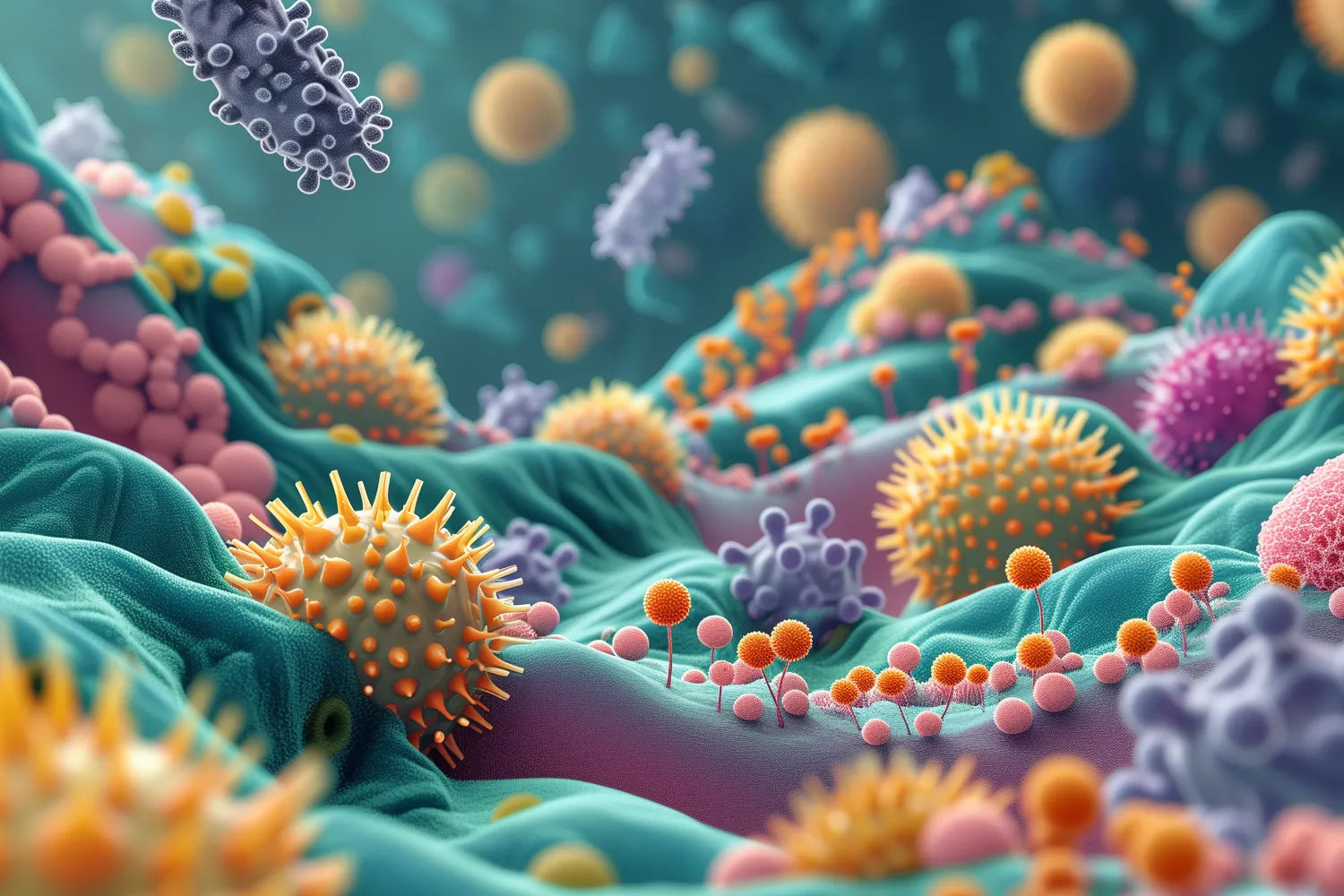
Dr. Eric Venn-Watson’s Highlights
The keto diet has increased in popularity over the past several years, leading avid keto followers to look for ways to enhance their health and support their bodies while they are in ketosis.
Whether you’re a keto purist or a newbie, we’ll help you learn what the keto diet is, how it can help you lose weight, and what supplements are the best options for maintaining your health while following a keto diet.
What Is the Keto Diet?
The ketogenic or “keto” diet is a variation of the Atkins low-carbohydrate diet. The keto diet plan dramatically reduces carbohydrate intake and substantially increases fat intake.
The keto diet is intended to help the body burn excess fat for energy, helping the dieter lose weight and eventually maintain a healthy weight.
Part of the keto diet involves entering a state of ketosis. Ketosis is a metabolic state that can happen naturally when you are fasting, overnight while you sleep, or when you are on an extremely carb-restricted diet.
Ketosis and the Production of Ketones
Your liver converts the sugar in your blood into glucose, which is used for energy to fuel your body. Insulin is then produced by the pancreas, which helps regulate the amount of glucose in the blood.
Your body needs energy to carry out specific processes, and also to give you energy to live.
When your body is in a state of ketosis, it means there isn’t enough glucose in your liver to convert into energy. When this happens, your liver switches to converting fat into energy. The liver converts fat to ketones, which are then released into the bloodstream to be used as fuel.
The presence of ketones in blood or urine can indicate that insulin levels are low, which means your body has entered a state of ketosis and is now burning fat for fuel.
How the Keto Diet Helps You Lose Weight
Most diets focus on calorie restriction as a means of weight loss. While it’s true that a foundational aspect of weight loss is placing your body into a caloric deficit, the keto diet approaches weight loss differently.
When the body enters a state of ketosis, it no longer uses the sugar in your blood as fuel. Instead, the liver produces ketones from fat that already exists in your body. As such, the keto diet helps you lose weight by forcing your body to burn excess fat for energy.
Health Concerns With the Keto Diet
The keto diet is generally safe for healthy adults to follow short-term, however long term ketogenic diets can lead to significant health concerns like:
- Low blood pressure
- Kidney stones
- Nutrient deficiencies
- Gastrointestinal issues like constipation
These long term side effects are in addition to the traditional “keto flu” effect that almost every person experiences when first beginning the keto diet.
The keto flu refers to feeling sick, dizzy, nauseous, disoriented, experiencing mood swings caused by the body’s adaptation to ketosis.
Supplements can help support your body while you are on the keto diet plan, and can even offer you some relief during the first weeks of keto flu symptoms.
How Supplements Can Help
Supplements work by supporting your body so that it functions properly. Supplements that help support your body while you are in ketosis can help promote liver health and function, ensure a balanced mood, and protect functions of your body that might be affected by the transition into ketosis.
Here are some supplements that work well with a ketogenic diet.
Magnesium
Your body needs magnesium to help ensure balanced energy levels, maintain healthy blood sugar, and assist in building your immunity. Magnesium-rich foods like beans and fruit are also high in carbohydrates, which means a person on a keto diet may be restricted from consuming them.
People on a keto diet can become deficient in magnesium, which can affect energy, mood, and immunity. Taking a magnesium supplement can help fill in the dietary gap created by the keto diet and ensure you’re getting enough of this mineral in your body.
Many people who begin a keto diet also rely on magnesium supplements to help with the symptoms of the keto flu. Magnesium can help alleviate cramping, support a balanced mood, and even help you get a better night’s sleep.
Side Effects of Magnesium Supplements. Magnesium supplements are often taken to help people who suffer from sleeplessness. Magnesium has a calming effect that can make you drowsy. Additionally, some users may experience temporary gastrointestinal upset when taking magnesium.
MCT Oil
Medium-chain triglycerides, or “MCTs,” are fatty acids that are broken down in your liver. Unlike long-chain triglycerides (which is the most common type of fat we consume), MCTs break down faster in the liver.
Keto dieters take MCT oil to help get fuel into their bloodstream more quickly. Many keto dieters will ingest MCT oil, which is more concentrated than MCT found in foods. Taking MCT oil prior to a workout can help fuel the body with quick releasing energy.
Side Effects of MCT Oil. Taking MCT oil can be beneficial, but stomach discomfort can be normal when you first begin taking it. It’s best to start with a small dosage to see how your body reacts.
Omega-3 Fatty Acids
Omega-3 fatty acids are beneficial for supporting heart health, supporting memory, and helping reduce chronic tissue irritation. Both omega-3 and omega-6 fatty acids are essential in supporting a healthy body, but Western diets are classically more inundated with omega-6 fatty acids.
Too much omega-6 can cause high blood sugar and other negative health markers. Keto dieters are more susceptible to overconsuming omega-6’s due to the naturally high fat content in their diets.
Taking an omega-3 supplement, like fish oil, can help support the body during ketosis and also balance omega-6 consumption.
Side Effects of Taking Omega-3. Most of the time, omega-3 supplements, like fish oil, are generally well tolerated. However, there’s no denying fish oil supplements come with a particularly fishy aftertaste that can cause “fish burps,” and nausea.
Too much omega-3 can also cause high blood sugar and increase your risk of blood clotting issues.
Elevate your cells. Elevate your self.
Pentadecanoic Acid
Pentadecanoic acid, also known as C15:0, is an odd-chain, saturated fatty acid that a growing body of research indicates is the first essential fatty acid to have been discovered in over 90 years, i.e. since the discovery of the omegas.†
C15:0 helps support your body’s health on a cellular level, and is a great option for keto dieters to help support healthy liver function, balance mood, and ensure proper metabolic function.*
C15:0 helps support liver function by protecting their cells.* When liver cells are damaged or aging, they can lose function, which can leave you at risk of developing related illness.
C15:0 supports liver cells by:†*
- Strengthening cell membranes. Cell membranes become flimsy over time, leaving them at risk of external stressors that can damage them. C15:0 is a sturdy fatty acid that enters the cell wall and fortifies it, keeping your cells protected.
- Boosting mitochondrial function. Sluggish mitochondria can rob your cells and your body of energy. Keto dieters can experience energy issues while they move into ketosis. C15:0 helps encourage mitochondrial function in the cell, making sure that cells function properly, so you can have the energy you need to power through your day.
C15:0 helps support more than just cell function. By binding to PPAR receptors in your brain and body that control metabolism, mood, and immunity, C15:0 helps ensure your metabolism thrives during ketosis.* It also helps balance your mood and immunity, bringing you back into homeostasis.*
C15:0 is found in trace amounts in some fish and whole fat dairy products like whole milk and full fat butter. If you’re on a ketogenic diet, you may already be consuming these foods. C15:0 in these foods, however, is attached to triacylglycerides that then have to be broken down into free fatty acids before being absorbed.
Fatty15 is the once a day supplement you can take on your keto diet that contains pure FA15™ (the free fatty acid, vegan form of C15:0). Fatty15 can help support your cells, keep your mood stable, and ensure your liver is fully supported throughout your ketogenic diet.*
The Bottom Line
The keto diet can be a great way to help you lose extra weight, but restricting your carbohydrate intake can cause gaps in your diet that need to be filled. Supplements can help you fill dietary gaps while you are in ketosis.
Fatty15 is a great supplement for keto dieters who want to support healthy liver function and improve mood and metabolism while they are on their weight loss journeys.*
Sources:
The Ketogenic Diet: One Decade Later|PubMed

Eric Venn-Watson M.D.
CEO, Co-Founder
Senior Scientist, Co-Founder
Eric is a physician, U.S. Navy veteran, and Co-founder and COO of Seraphina Therapeutics. Eric served over 25 years as a Navy and Marine Corps physician, working with the special forces community to improve their health and fitness. Seraphina Therapeutics is a health and wellness company dedicated to advancing global health through the discovery of essential fatty acids and micronutrient therapeutics.
You May Also Like...
10 Foods Good for Your Liver: The Ultimate Guide
Your liver does a lot for you. If it had a voice of its own, it might ask you to eat more veggies and cut back on your Old Fashioneds. Unfortunately, the liver doesn’t receive a lot of attention until...
How To Improve Your Gut Microbiome: 6 Tips
Interested in how to improve your gut microbiome? We’ve got six tips to help your gut thrive and improve your overall digestion.


